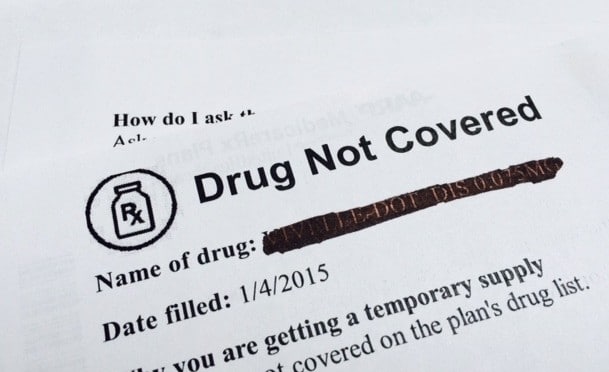updated October 27, 2017
by Barbara Nevins Taylor
Alice recently opened a letter from her Medicare supplemental plan and groaned. The letter explained she would get a three-month, temporary supply of her prescription, and then it was over. The back of the letter told Alice (not her real name) the whole sad story in three simple words: “Drug Not Covered.”
The drug was covered the previous year, but the insurer said it would not cover it this year. Unfortunately, covered medication doesn’t roll over into the next year. Insurers change the drugs they offer, in what they called their “formulary,” every year. And last year, Alice neglected to review the new formulary to make sure the medication was on the company’s list of approved drugs for the coming year, when she re-signed with its Part D plan during the fall Open Enrollment period, which generally runs from about October 15 through December 7.
Okay. She and the many, many others like her can do something. And so can you when you get a Medicare “Drug Not Covered” letter.
Here’s How to Appeal When You Get A Drug Not Covered Letter.
1. Appeal
You may want to throw up your hands and do nothing when your insurer says it won’t cover a drug, but a little effort can help you get what you need.
2. The back of the letter should include contact information for an appeal. Your doctor has to make the appeal for you.
3. Email or fax your doctor’s office the information about the appeal and have the doctor explain why you need the medication as opposed to a similar drug that the insurer covers.
4. The insurer must respond with 24 to 72 hours. They will send you written notification about the decision.
5. If you and your doctor don’t like the decision, you can appeal again and ask for an exception.
6. In some cases, your doctor may ask you to try the substitute medication to see if it is effective. If it doesn’t work for you tell your doctor and ask him to make another appeal.
7. If you need the specific medication, appeal, appeal and appeal.
8. If you need help you can contact the Medicare Rights Center. It runs a free helpline: 800-333-4114.
Watch this video and Joe Baker of the Medicare Rights Center will explain more.



